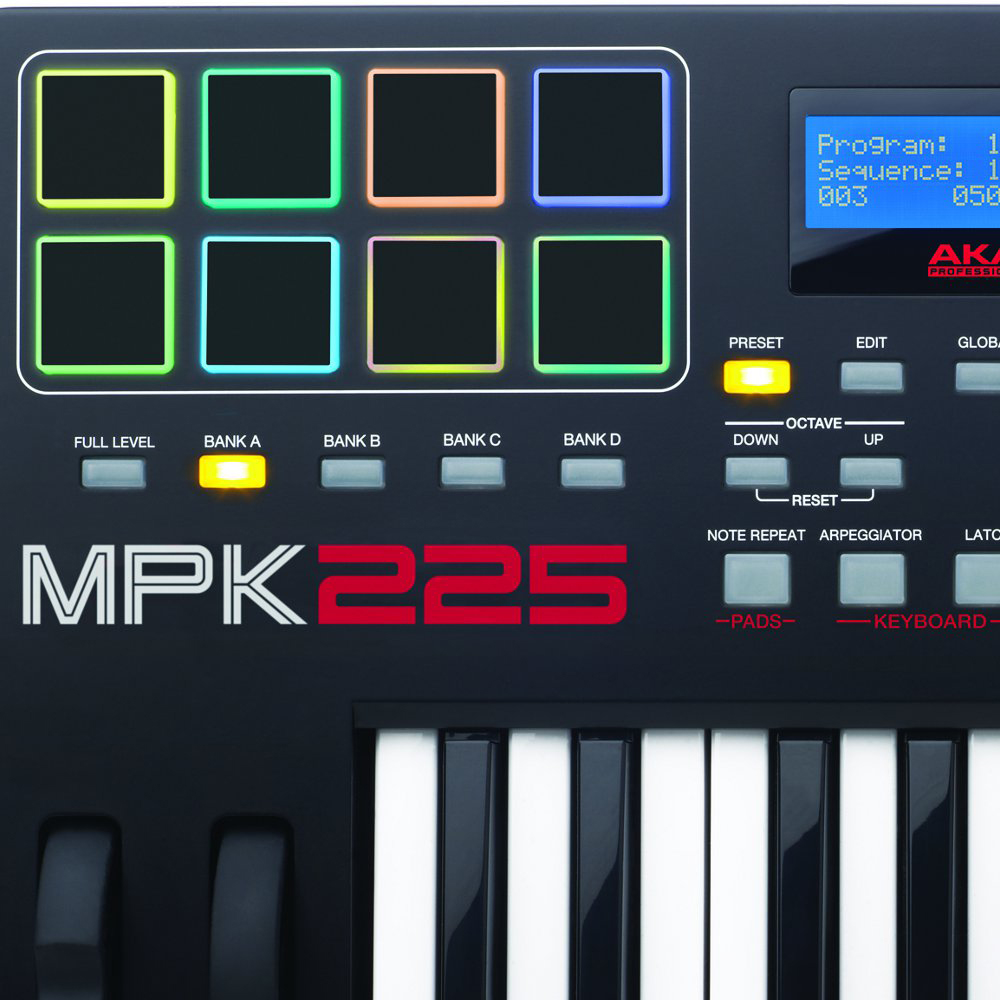
- #Akai mpk miniplay difference mod#
- #Akai mpk miniplay difference update#
- #Akai mpk miniplay difference portable#
- #Akai mpk miniplay difference pro#
#Akai mpk miniplay difference portable#
With over 100 built-in melodic instruments, drum kits, and sound effects, the MPK mini Play is an all-in-one solution to portable jam sessions. Modified on: Mon, 18 Apr, 2022 at 3:46 PM
#Akai mpk miniplay difference pro#
But perhaps a bit less of a clear leader in the bang-for-your-buck department.Solution home Akai Pro | MPK mini Series MPK mini Series | Frequently Asked Questions Akai Pro MPK mini Play | Frequently Asked Questions It still remains a solid controller for the price.


#Akai mpk miniplay difference update#
Update 12:20 PM ET: Akai has revised the pricing for the MPK Mini up to $119. But, the improvements it did make mean you probably won’t feel disappointed if you buy one. So you can take advantage of the legendary MPC swing and sample chopping features, without completely abandoning your existing workflow.Īkai didn’t do quite enough to make the MPK Mini the clear king of the portable controller hill again. But, in addition to being a standalone app, you can also use it as a plugin in your DAW of choice. And the integration with Akai’s free new MPC Beats software, plus the small bundle of free softsynths and sample packs that come with it, only sweetens the deal. Just be aware that the MPC workflow is relatively unique, so if you’re coming over from Ableton or Logic, there’s a bit of a learning curve. Nobody offers the same combination of finger drum-friendly pads and a piano-style keyboard at that price. At $99, it’s one of the best bang-for-your-buck portable MIDI controllers out there. Still, one of the biggest selling points of the MPK Mini remains its price. They have a little more travel, which improves feedback while playing, and the texture feels a little more upscale as well. Interestingly, the already stellar pads have gotten even better. And the joystick has a bit more resistance, which makes it easier to get subtle movement out of your notes. The cheap-feeling pots of the last model have been replaced with endless encoders that are larger and feel a lot less toy-like. The joystick and knobs, on the other hand, are huge improvements. It still feels a bit hollow, but the return action on the keys is less aggressive and springy. And the keybed is improved, if only slightly. The mk3 doesn’t suddenly feel like a $500 keyboard, but it does bring a little more heft and polish.

The keybed, knobs and general build felt cheap and flimsy. As much as I love the MPK Mini mkII, it was never going to be mistaken for a premium piece of music making gear. The thing is, all these components feel much more reliable on the mk3. But right now, at least, the screen is of limited utility and doesn’t really reflect anything happening on screen in a meaningful way.

The most obvious difference here is the addition of a small screen that provides some feedback for parameters as you change them.
#Akai mpk miniplay difference mod#
There are 25 velocity sensitive keys, eight velocity sensitive pads, eight knobs, an X/Y joystick (instead of pitch and mod wheels), an arpeggiator and a note repeat function. The main features are virtually unchanged from the previous model.


 0 kommentar(er)
0 kommentar(er)
